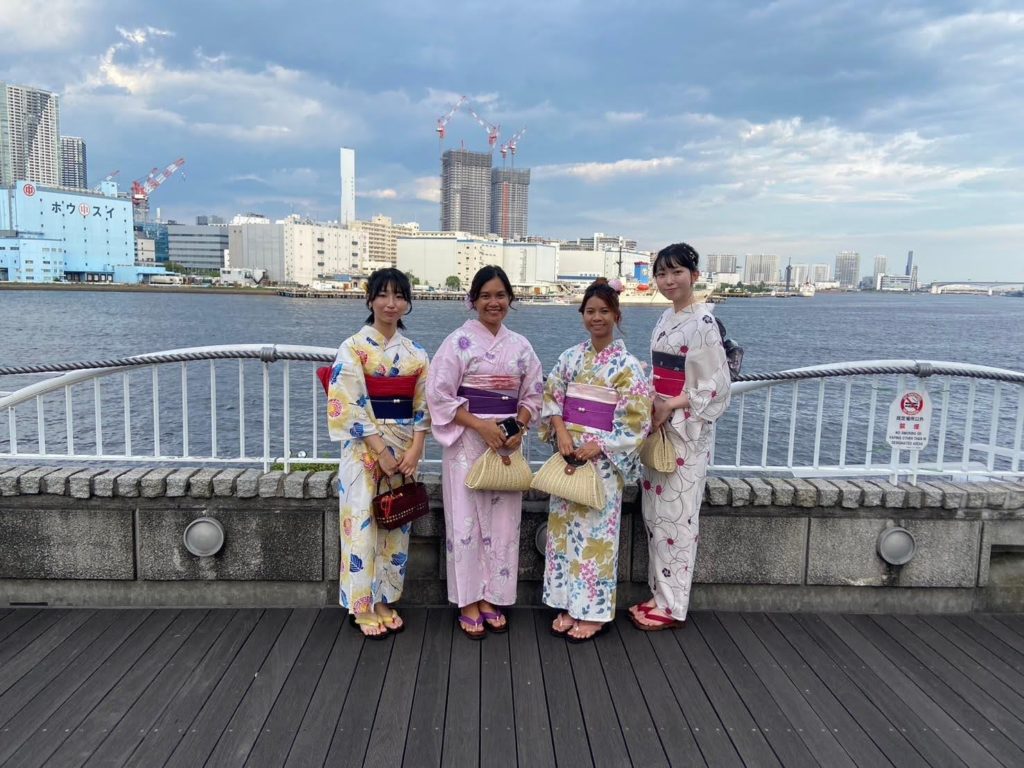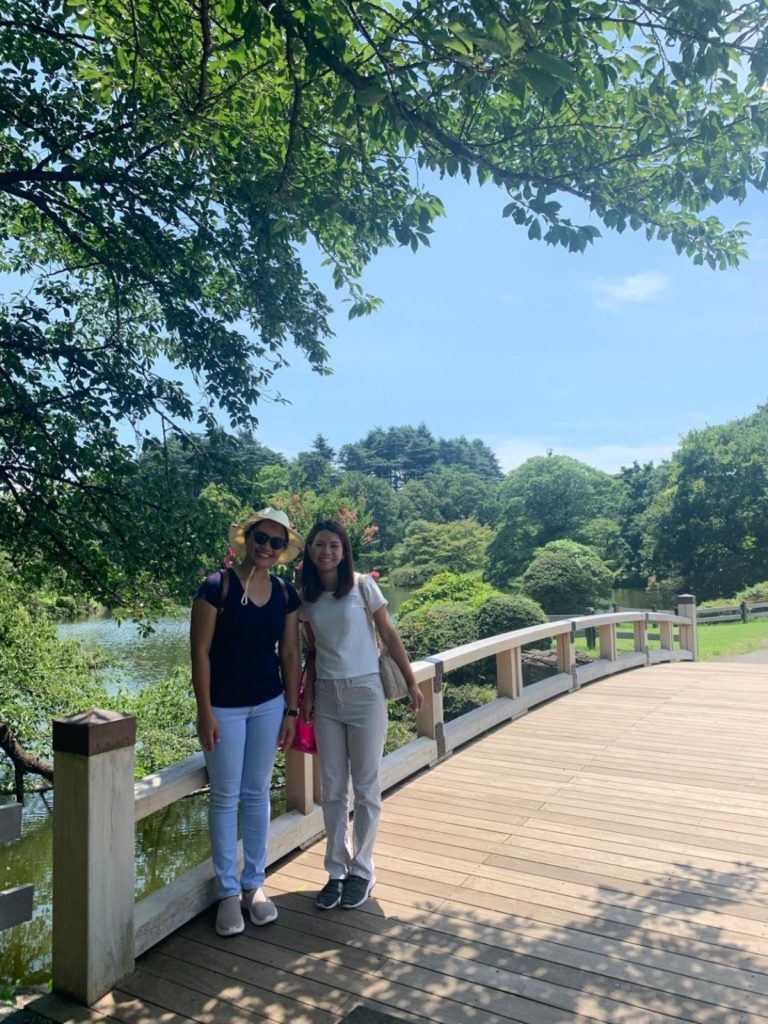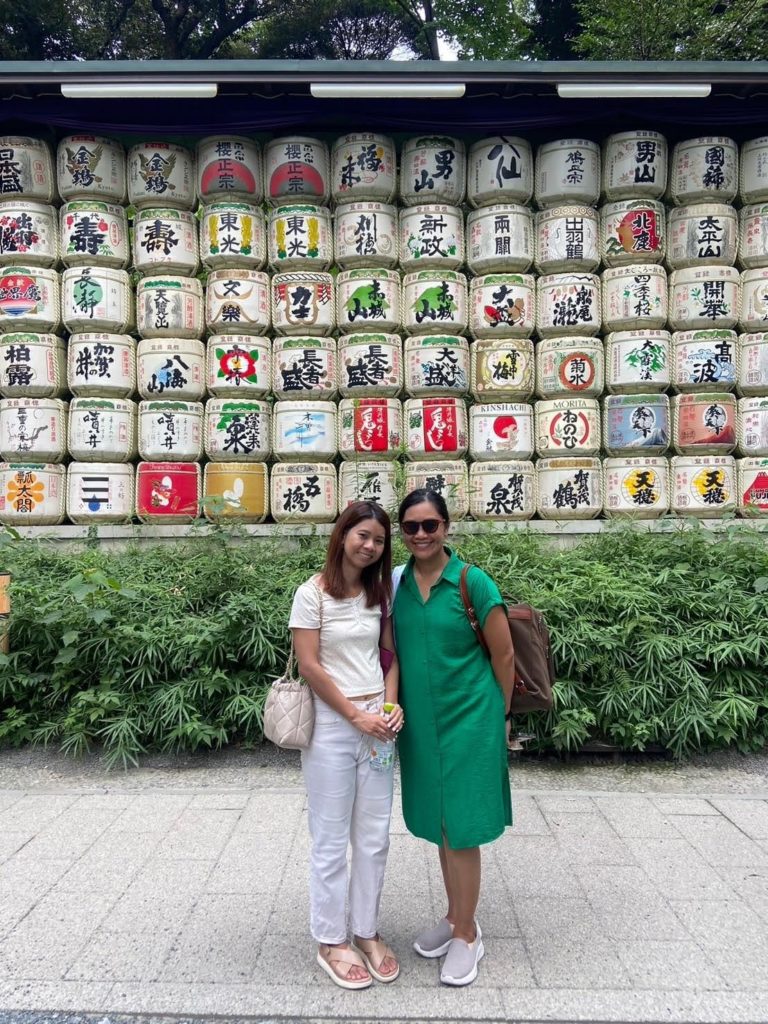This exchange program provided them with invaluable insights into gender issues and deepened their appreciation of different cultures and societies. With guidance from their professors and the support of Japanese friends, they gained an exceptional learning experience that will influence their future work. They express their heartfelt gratitude to AIT and Ochanomizu University for this opportunity and are committed to using the knowledge and experiences gained to drive positive changes in their communities.
Gender and Development Students Engage in International Workshop at Ochanomizu University
05 Sep 2024
Parichat Meesomsakdi, a Masters’s student, and Marissa Hernando-Valdez, a PhD student from the Gender and Development Studies Program at AIT, participated in the Ochanomizu University–Asian Institute of Technology Workshop Programme held from July 25 to August 1, 2024, in Tokyo, Japan. The program included visits to various institutions and organizations relevant to their thesis research on women in micro, small, and medium enterprises (MSMEs) and agriculture. During the workshop, they gained diverse perspectives and learned different approaches to investigating gender and development issues. They also enhanced their skills in field research techniques such as interviewing, conducting fieldwork, presenting research, participating in interactive seminars, and attending an international symposium.

Key activities of the program included an online seminar with Professor Fumi Iwashima from Kyoto University, discussing the dominant discourse on rural women. The students visited Kobito Farm, where they were inspired by a woman-led agricultural enterprise and its significant contribution to community food self-sufficiency and engagement. They also learned about NOUMIREN or Japan Family Farmers Movement, which advocates for inclusive, agriculture-based family farming, food security and safety, and the necessity for agricultural policy reforms. A highlight of their visit was touring NOUMIREN’s food research laboratory, where they examined residual agricultural chemicals and heavy metals in both imported foods and domestic agricultural produce.
Parichat and Marissa presented their respective research at the Workshop Programme IGS-AIT on Gender and Empowerment in Urban Space. Parichat’s research was titled “Researching Women’s Empowerment: Case of Thailand’s OTOP” and Marissa’s research was titled “Intra-household labor contribution and decision making in coffee production: The case of Quirino, Philippines.” IGS graduate students and Professor Fumie Ohashi shared their insights and feedback on their papers.
Additionally, they visited the Ministry of Agriculture, Forestry, and Fisheries, where they learned about the role of Japanese women in agriculture, their participation’s significance, and government programs aimed at empowering them. An online interview with the Japan International Cooperation Agency (JICA) provided further insights into JICA’s initiatives, such as OVOP+1, capacity building for women, and various forms of assistance offered to other countries.

The students also participated in a graduate workshop focused on exploring the possibilities of commons and commoning from feminist political ecology perspectives. This workshop was driven by discussions on the articles “Rethinking Life-in-Common in the Australian Landscape” and “More-than-Human Commoning through Women’s Kokorozashi Business for Collective Well-being,” led by Professor Wendy Harcourt (Erasmus University Rotterdam, Netherlands) and Professor Chizu Sato (Wageningen University, Netherlands). The final activity they attended was the IGS International Symposium, themed “Feminism and Commoning: Feminist Intervention to Post-Capitalism,” where lectures by Professors Wendy and Chizu and comments from other university professors enriched their understanding of how gender intersects with the concept of commoning in research.


Beyond academic activities, Parichat and Marissa had the opportunity to immerse themselves in Japanese culture, particularly the Japanese summer festival. They wore Yukata and celebrated the festival with friends, explored the vibrant city of Tokyo at night, and enjoyed nature and spiritual reflection at Shinjuku Gyoen National Garden and Meiji Jingu. Their cultural experience also included visits to iconic sites such as Takeshita Street, Tsukiji Fish Market, Tokyo Tower, and Asakusa, where they observed popular culture and the dynamic lives of Japanese youth.